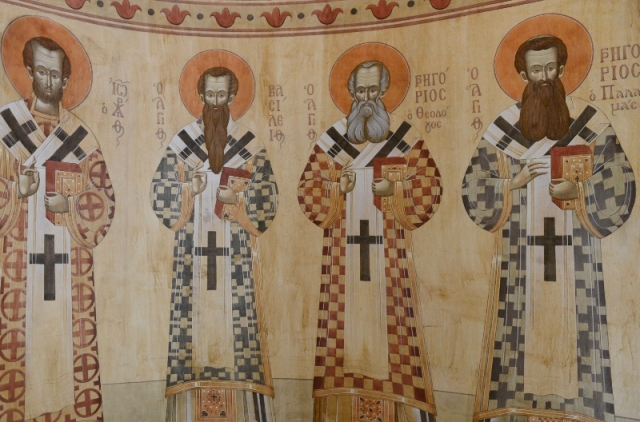By Metropolitan Hierotheos of Nafpaktos and Agiou Vlasiou
Theology is not connected to philosophy, because the path of both is different. Theology is based on theoria – the vision of God, while philosophy is based on human reason, reflection. Thus, the Holy Fathers of the Church were theologians/theoptics and not philosophers. And when they dogmatized, they did not do so in a philosophical way and in order to understand or develop philosophy.
The Fathers of the Church did not reflect on God, but they had the knowledge of the dogmas. Reflections are a gymnastics of the intellect and are not connected to the experience of Orthodox theology. If Orthodox theology were based on reasoning and logic, then the best theologians from the side of Orthodox theology would be the professors of dogmatics and the history of dogmas. This is not the case.
Dogma is not approached from the side of metaphysics. In Western theology, metaphysics prevailed in dogmatic issues, which is why Western dogmatics is not successful, it does not “produce” relics.
The Holy Fathers, however, were not metaphysical philosophers and for this reason it is not possible to interpret the Orthodox tradition through metaphysics. Western theology was closely linked to metaphysics, which is why there was a serious reaction from the Enlightenment, that is, the Protestants and the Enlightenment reacted to Western scholastic theology. However, this does not happen in the Orthodox Church, which considers that dogmas are expressions of experience and not metaphysical reflections.
While for Orthodox theology, dogmatic terms are the fruit of the experience of theosis and indicators that lead to theosis, this is in contrast to the West, where dogmas are believed to be linked to reflection.
Source: From the book Ἡ πίστη τῶν ἁγίων. Translation by John Sanidopoulos.
